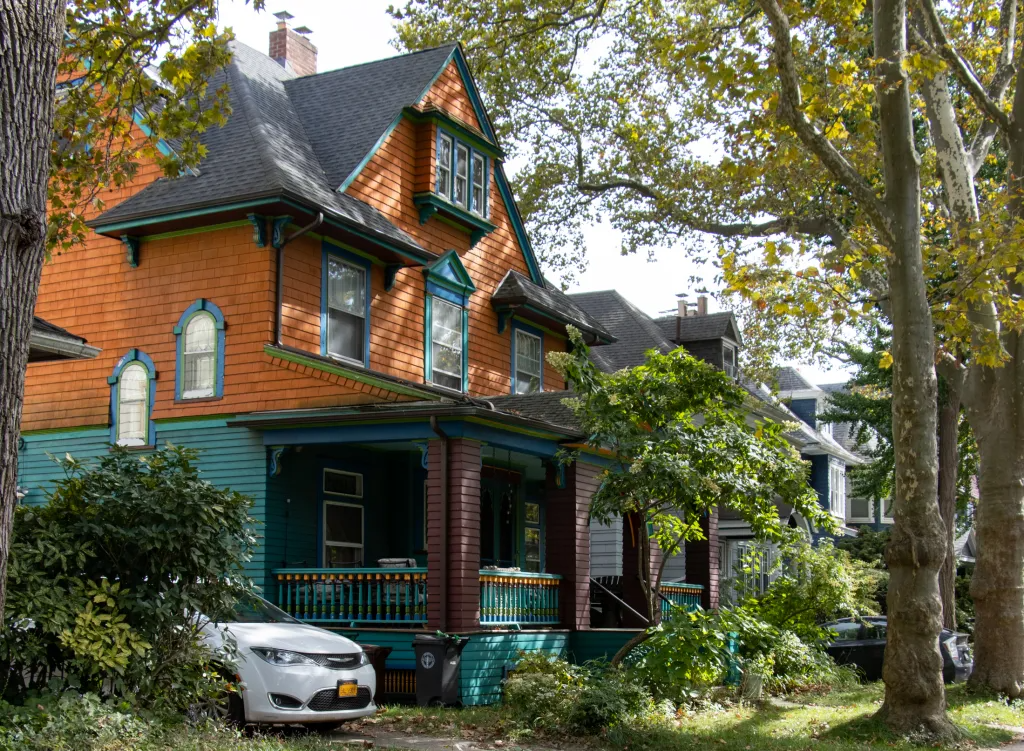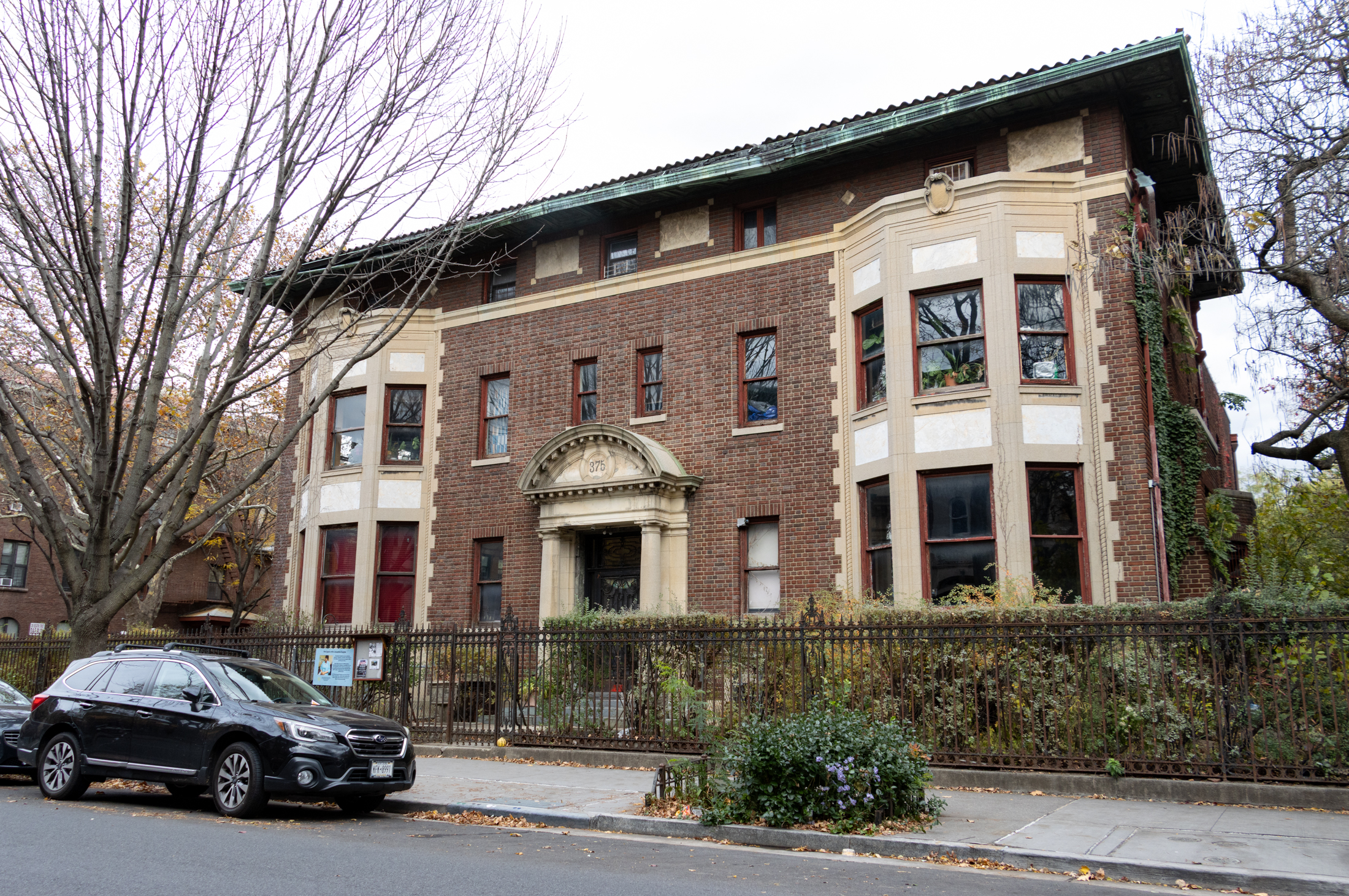City To Get Tough On Negligent Landlords
While we’re not so sure about its constitutionality, a new bill to be proposed by the Bloomberg administration would give the city more power to take proactive measures to fix up derelict buildings whose landlords who fail conform to certain safety standards. Under the plan, HPD could go into a building with a minimum of…


While we’re not so sure about its constitutionality, a new bill to be proposed by the Bloomberg administration would give the city more power to take proactive measures to fix up derelict buildings whose landlords who fail conform to certain safety standards. Under the plan, HPD could go into a building with a minimum of 27 uncorrected code violations and redo everything from roofs to entire electrical systems and then stick the negligent landlords with the bill; if the owner didn’t pay up, the city would put a lien on the building. The goal is to restore the ailing portion of the housing stock at a time when demand for housing in the city has never been stronger; the goal is 200 buildings a year for five years. Sounds like a good move to us, though if they really wanted to fix the problem they’d get rid of all rent controls.
City to Seek Broader Power Over Buildings [NY Times]
Photo by humain





Sylvia,
You just don’t seem to get how unfair it is for private landlords to be forced by the government to accept paltry rent that hardly covers the expenses of maintaining a building.
Most rent regulated tenants do not fall into this catagory. There has never been a low salary requirement to obtain privately owned rent regulated housing in NYC.
For some reason you’re confusing the two issues and lumping them together.
I’d be fine with maintaining the rent laws for people who make below a certain amount, say fifty-thousand a year for example.
It still wouldn’t be “fair” to private landlords like myself, but at least there wouldn’t be so much abuse by folks with million dollar stock portfolios and the like.
Sorry that wasn’t clear, Jake. Maybe I misunderstood you? You said it’s not your responsibility (as a landlord) or mine (as a non-rent-regulated tenant) to subsidize or provide housing for rent regulated tenants or workers. Right? You said that responsibility lies with the government.
So if you think the government should directly subsidize people’s rent, then you’re advocating more Section 8, more projects, etc. Last I checked, the government got its money from taxing private citizens like you and me. So they would have to get the money from you and me (taxpayers) to fund all these projects. And we all know how insanely wasteful such government projects are.
So would you rather abolish rent regulations, pay higher taxes and have an affordable housing scheme that’s “fair” but inefficient in terms of cost (since run by the gov’t), or are you advocating abolishing rent regulations and not replacing them with anything, so that our cheap labor force has to move away and next time you (as a landlord) need to, say, get your boiler fixed, you have to pay twice as much as you do now?
That’s what I was trying to say. I think it’s shortsighted to say that you want rent regulation abolished so you can make more money on your rentals. Sure, if it was just abolished in your building, you would make more money. But you have to consider the larger picture.
2:54pm,
Statistics are just as BS as everything else and are easily manipulated.
Government rent regulation of private property should be ruled unconstitutional based on property rights alone.
Statistics, however interesting, don’t change the fact that rent regulations on private properties drastically curtail the property rights of private citizens.
Sylvia, get a job.
The only fact I see for rents going down if rent control is removed is that realtors can’t use it as an excuse to bullshit people into overpaying anymore.
I’m sick of reading arguments on this site about rent regulation which aren’t backed up by any real facts. Specifically, the “fact” that rents would go down if rent regulation were eliminated. One poster cited Boston as proof. Here’s the study I found:
“Immediately after deregulation in Massachusetts took effect — between February 1995 and February 1996 — average rents for market-rate units in Boston rose $100 (13%), from $802 to $903. Vacancy rates fell sharply, from 4.5% to 1.8% in the city of Boston and from 4.2% to 1.4% in the Boston metro area. Vacancy rates in private assisted apartments (with state or federal subsidies) was 0.7%. A year later, rents averaged $917, with the vacancy rate at 1.67%. In the metro Boston area, average rents were $940 and the vacancy rate was 1.34%.”
Sorry Sylvia,
But I don’t have any idea what you’re talking about.
This my be a good time to take a time out. Have a good day.
As to the proposed law – I have to wonder who is going to do the reapirs on all the city owned apartments which are the worst run, violation rich slums in the entire city.
There are few LLs that display worse neglect and incompetence then the city does in running apartment buildings – but I guess for those few this isnt a bad law.
2:12pm,
I’d live in Paris if I could afford it. Unfortunately, I can’t so I live in Allentown, PA.
What’s your point? If I had worked harder in my life, sure, maybe I could afford to live in Paris as a retiree.
I don’t think anybody should subsidize my move to Paris because I want to move there. What are you talking about?
If you can’t afford something, go somewhere cheaper.
NYC is not the only city in this country. Here in Allentown, it’s easy to still find a decent one bedroom apartment for $500/mo and Lehigh University is fine school.
The bus ride to NYC only takes an hour and a half, so I go in once a month for theater and museums.
Either you can afford it or not, what’s all the fuss?